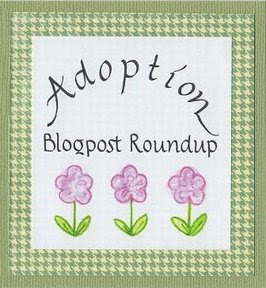
She was silent as she stood in the yard of the orphanage, exposed to the elements, nearly dying of pneumonia. Silent as she endured unspeakable verbal, physical, and sexual abuse. Silent as the only family who had ever shown her kindness died untimely deaths. Silent as she married hastily to escape her childhood horrors, only to find the nightmares multiplied. And now the eloquent silence served her again as she faced a phantom of childhood.
April looked into her aunt’s eyes … This woman had done as everyone else had done years ago. She had closed the doors of her beautiful home while her nieces begged on the street for food. April did not want this woman to touch her, and she sensed that her aunt felt it.
“I hope you can forgive your mother,” her aunt said, carefully touching her perfectly styled hair.
“It has not been a concern of yours, how I feel now or have felt. Am I correct?”
Her aunt stepped back from [April] and looked as if she had been burned with acid. She pulled her collar again in a nervous manner. April stared at the woman and felt as if she wanted to say more, or ask why she hadn’t put her mother in a hospital, especially since her aunt’s ex-husband was an attorney and could have helped her mother. She held back and simply stared at the woman in silence (p.297-98).
Silent Prisoner is not easy reading. Yet woven throughout are silvery threads of hope: distant relations and other strangers who showed momentary kindnesses. A little boy, the product of a loveless marriage that became for her a promise of a better future. Above all, the comfort of angels and glimpses of God … not overt and overwhelming, but beacons of something better, urging her on. It is the portrait of someone truly powerless, yet ultimately unbeaten.
Foster parents and those hoping to adopt older or difficult-to-place children will particularly benefit from this unforgettable story. Even the grim details of this young woman’s life offer a glimpse into the secret burdens that are common to many of the children in the system. Some details particularly struck home:
- April kept her things stored in the paper sack she came with, not trusting that she would be able to stay anyplace “for good” – or for long.
- The emotional reserve that kept her from joining in family activities unless explicitly invited – even watching television – because she was unsure her presence would be welcome. April's resolve not to tell when someone was hurting her, fearing no one would believe her – or care enough to help.
- Her rich imagination, inventing a friend and a mountain of treasure to tide her over in the darkness.
- The pressing need to find some area of control – what she ate, where she hid, to whom she spoke – when life seemed most out of control.
- Sadly, the patterns begun in childhood continued into adulthood; on three separate occasions she married men who began to abuse her.
Like many victims of domestic abuse, “April” becomes disenchanted with organized religion. And, like many victims of domestic violence, she has reason to be. Instead of defending her against her abusive husband, religious figures in her story – particularly one priest, “Bill” – side with the perpetrator, urging her to be a better wife and even testifying on her abusive husband’s behalf.
While the Church has made some significant inroads into understanding the dynamics of domestic violence, such as their pastoral letter released in 1995 entitled “When I Call For Help”, stories like April’s are grim reminders that there is still much work to be done. Catholics of all stripes – laity as well as clergy – need to be aware of the realities of this particular offense against the dignity of women and the sacrament of matrimony, so that they might be able to assist these prisoners from their dungeons of silence.
Based on the author Amanda Young's true story, Silent Prisoner is valuable (though difficult) reading for all those who wish to identify with the poor and powerless. Excellent Lenten reading.












 My StumbleUpon Page
My StumbleUpon Page



 border="0">
border="0">
















5 comments:
This book review makes me remember a book I read not too long ago by Kaye Gibbons - it's a short book too, but very good - "Ellen Foster". I recommend it.
God bless!
Hey! Me again. I was just looking over this blog (my first time here) of yours and if you are the editor of Canticle -- then you MUST know Genevieve Kineke! She used to live in Pensacola when I did years and years ago! She and my sister were buds.
(And I used to live in North Kingstown ---- years and years and YEARS ago)!
LOL
Yes, I've known Gen for a few years now. She's a columnist for the magazine now ... great lady. Small world!
Heidi,
Thank you so much for the wonderful review. I would like to thank you too for the opportunity to be a voice for those that feel they cannot speak out of any abuse they are enduring. I wrote the book 'Silent Prisoner' in hopes of raising awareness of domestic violence so that people will have a deeper understanding of what too many women and men go through. For those that feel they should not or cannot speak of their abuse this further causes them to be silent prisoners. Our voices speaking out together helps to end their suffering.
Thank you and God Bless
Amanda Young
author/Silent Prisoner
Wonderful review, very moving!
Post a Comment